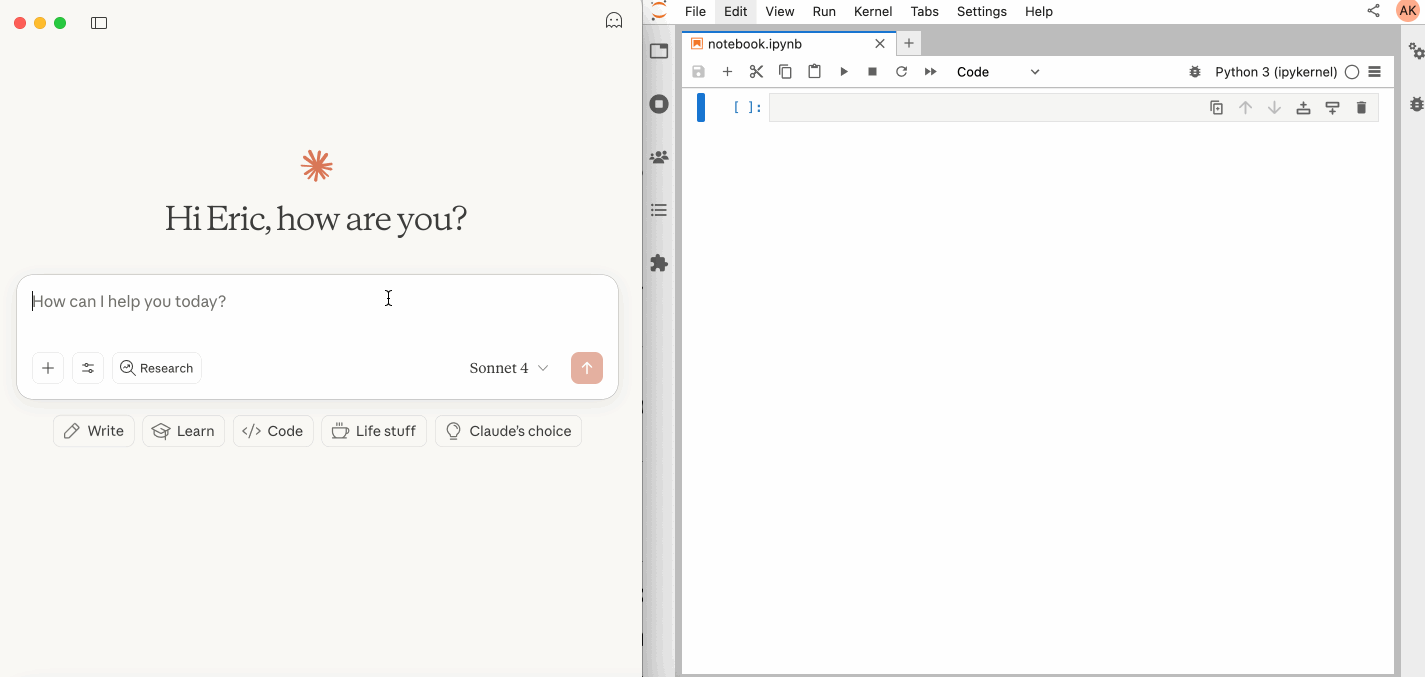About Jupyter MCP Server
Jupyter MCP Server is a Model Context Protocol (MCP) server implementation that enables real-time interaction with 📓 Jupyter Notebooks, allowing AI to edit, document and execute code for data analysis, visualization etc. It is compatible with any Jupyter deployment (local, JupyterHub, ...) and with Datalayer hosted Notebooks. Key features include:
- ⚡ Real-time control: Instantly view notebook changes as they happen.
- 🔁 Smart execution: Automatically adjusts when a cell run fails thanks to cell output feedback.
- 🧠 Context-aware: Understands the entire notebook context for more relevant interactions.
- 📊 Multimodal support: Support different output types, including images, plots, and text.
- 📁 Multi-notebook support: Seamlessly switch between multiple notebooks.
- 🎛️ JupyterLab integration: Enhanced UI integration like automatic notebook opening.
- 🤝 MCP-compatible: Works with any MCP client, such as Claude Desktop, Cursor, Cline, Windsurf and more.
